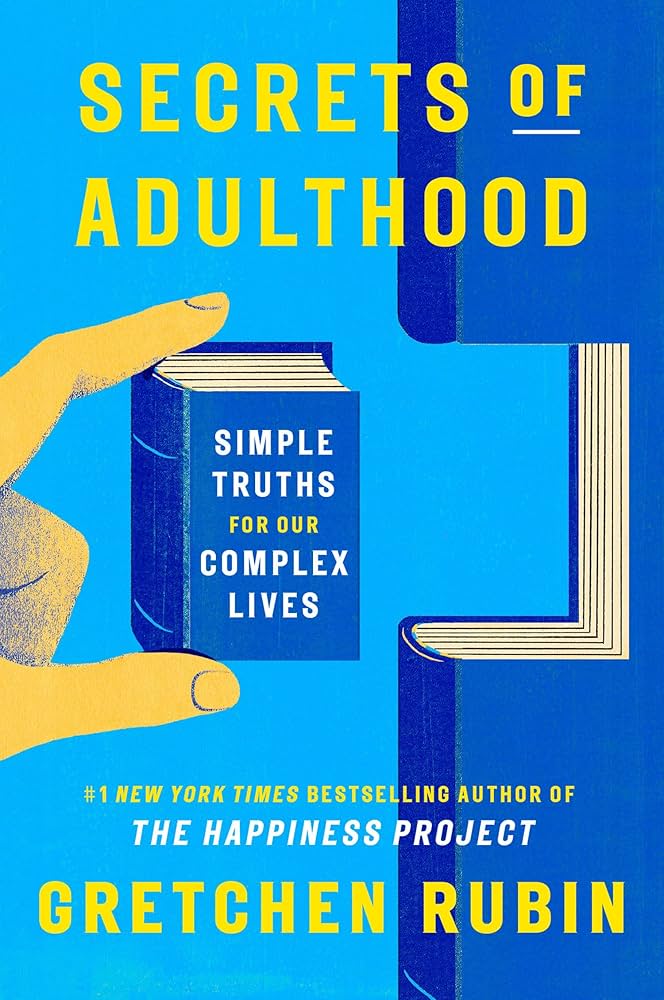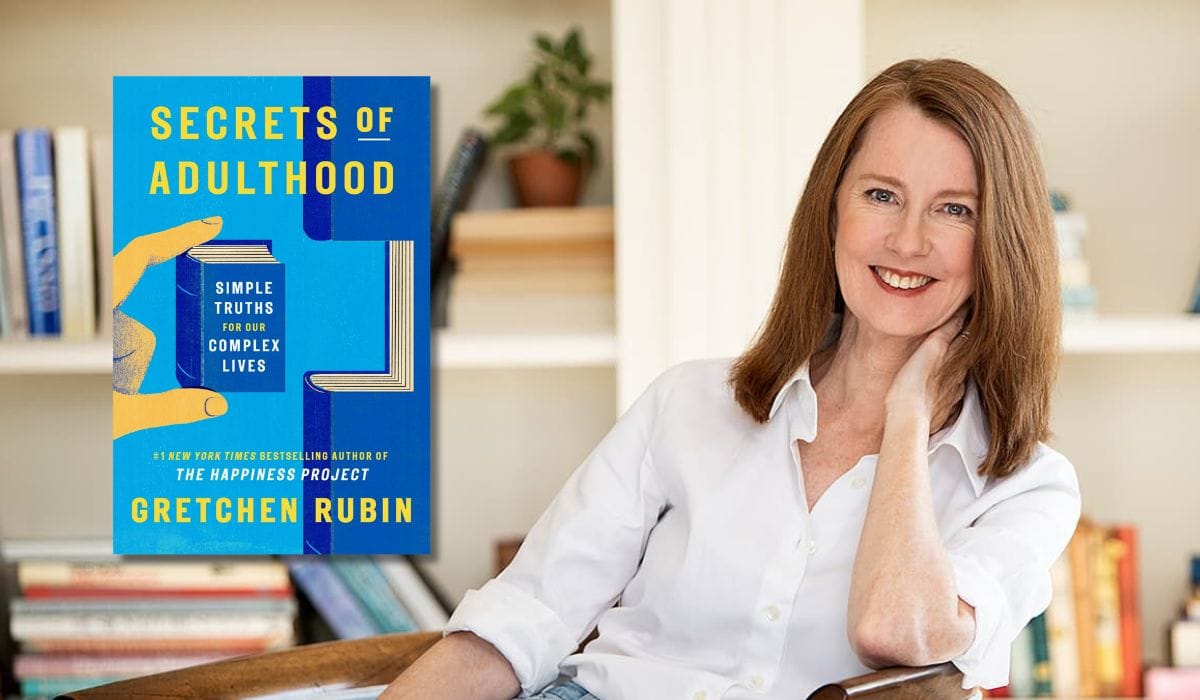Gretchen Rubin Offers the Simple Truths to Navigating Complex Times

Did you like listening to this article? We want to know more about your listening experience.
Gretchen Rubin always gives us the discernment we need. The bestselling author—who writes about happiness, creativity, and the intricacies of being human—has a way of distilling life's big lessons so they're accessible and clarifying, leaving us readers more joyful and hopeful.
Rubin takes her knack for distilling to new heights in her latest book, The Secrets of Adulthood: Simple Truths for Our Complex Lives. She weaves her love of aphorisms—short observations that carry big messages—with her passion for squeezing the most out of this life. “The brevity allows us to grasp them with more immediacy than something longer,” she tells us about the book’s pithy sayings. We found reading The Secrets of Adulthood is like picking up binoculars: You quickly zero in and get clarity.
The Sunday Paper spoke with Rubin this week about her love of succinct lessons and her wisdom in helping us navigate these complex times.
A CONVERSATION WITH GRETCHEN RUBIN
You write that "aphorisms provoke our reflection." Tell us more: What draws you to them?
Part of it is their brevity; you can take them in in one breath. They're stickier in the mind because they're so concise. It also forces clarity of thinking because if you have to distill a big idea into a single sentence or two, it does crystallize. That's when it allows the reader to reflect or to disagree. Sometimes, you read an aphorism and think, I actually don't agree with that—but even that brings clarity, which is very gratifying.
They also serve as meditations, which is helpful since so many of us get caught up in overthinking these days.
Somebody told me that they read a few at a time, and then they would go off and think about them rather than turn page after page. I thought that was interesting because they are very dense. It's funny because some people think this will be a light and breezy book, but it's not a breezy form; it's a wavy form.
You've been collecting these lessons and aphorisms for years, often finding them in unexpected places, including novels. Tell us more.
In the book, I give an example from Iris Murdoch, a very aphoristic novelist. But then, when you look at Oscar Wilde's famous aphorisms, a lot of them come from The Picture of Dorian Gray, which is like reading Hamlet in that every line is familiar because there are so many aphorisms embedded in the story. Then you have someone like Warren Buffett, who is just an amazing writer in his letters to shareholders. So, part of what's been fun for me is when I'm reading, I am constantly taking notes and I am always picking up where someone has been given an aphorism in an unexpected place.
This reminds us of when we last talked with you, which was for your book Life in Five Senses. You said that opportunities to tap into our senses are always all around us. When it comes to finding aphorisms and succinct bits of wisdom, how can we open our minds to the potential lessons around us?
I think that reading the book helps people to do that. Now that it's been out, people will say to me, 'I was reading, and I realized I always say this,' or 'My boss always told me this,' or 'This is what my grandfather always said.' So, I think part of the pleasure of reading them is that they allow you to interpret your own thoughts in that way.
One of the most satisfying secrets of adulthood is when you read something from somebody else, and you think, That is what I've always thought! I've always known that myself, but I never quite articulated it. You have this feeling of recognition. Reading them helps people think along those lines themselves, which is why at the end of the book, there are [blank] lines. People often say, 'Now I realize I have this too!'
We'd love it if you'd reflect on a few of our favorite aphorism pulled from the book. The first one is: "What we do every day matters more than what we do once in a while."
This is so funny because so many people have mentioned this one to me! To me, this seems like a truth so obvious that it almost didn't need to be stated, and yet so many people are like, 'This is a revelation to me.' What is interesting is that it is just so true: What we do every day matters more than what we do once in a while.
That one evokes the idea of self-care and that the work is never done. Caring for ourselves and exercising is important but it's the consistency of it that matters.
Yes, I wrote about this in Better Than Before. Running a marathon is great, but you really want to have the habit of running for the rest of your life. There is that feeling that you don't hit a finish line with a lot of these things; they are something that want to be doing forever.
How about this one: "Don't do something to make yourself feel better, if it just ends up making you feel worse." Whoa!
Yes! This is the impulse shopping. The extra glass of wine. The midnight snack. You know the minute you do it, you will regret it. So, it's about taking that pause and thinking, In the end, I'm not going to look back on this with pleasure.
Okay, one more: "Character isn't what we hope to be or do or intend to be or do; it is what we actually do when given a choice.
This is really is about, you are what you do. You can't say, 'I have a good character, but I just do bad things.' This is about when you have a choice; what choices do you make?
Gretchen, we are in such a moment right now. There’s lots of uncertainty and dark news. So many of us feel anxious and scared. What wisdom can you offer to help us make sense of this complex time?
One thing that I often comfort myself with is the idea that now is now, and now is also already a long time ago. Just that gives me a historical perspective. It is about remembering that we're in a moment now, but this moment will move into the past and things will change. It is reassuring to step into a more transcendent view of history and time. For me, that is very comforting.

Gretchen Rubin is one of today’s most influential observers of happiness and human nature. She’s the author of many books, including the New York Times bestsellers Outer Order, Inner Calm; The Four Tendencies; Better Than Before; and The Happiness Project. She also hosts the podcast 'Happier with Gretchen Rubin' and writes the newsletter '5 Things Making Me Happy,' which you can sign up for here.
Please note that we may receive affiliate commissions from the sales of linked products.



